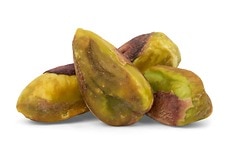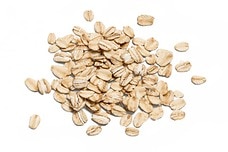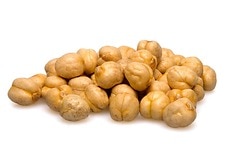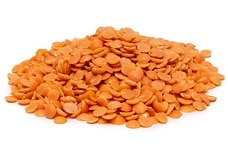Vitamin B6 (Pyridoxine)
Vitamin B6, also called pyridoxine, is one of eight members of the vitamin B complex family. Like all B vitamins, pyridoxine is involved in converting food (carbohydrates) into fuel (glucose) for energy. All of the B-complex vitamins are water-soluble, which means they are not stored in the body for long periods so they must be replenished every day.
How do I get vitamin B6?
Vitamin B6 can be obtained through food and vitamin B complex supplements. Foods rich in pyridoxine include meats like beef, pork and turkey, as well as vegetables like spinach, peas and carrots. Nuts, lentils and soy products are also a good source of the vitamin. Dairy products such as milk and cheese provide high levels of pyridoxine, too. Additionally, it’s found in fortified cereals, flour, eggs, and fruits like bananas, oranges and cantaloupe.
Vitamin B6 Deficiency
Since vitamin B6 is available in many foods, dietary deficiency is rare. However, a diet consisting mostly of processed foods can result in vitamin B6 deficiency because the act of processing depletes the nutrient. Secondary deficiencies are more common and can result from protein-energy malnutrition, malabsorption, alcoholism, and the use of pyridoxine-inactivating drugs. In adults, vitamin B6 deficiency causes problems which affect the nerves, skin, mucous membranes and circulatory system. In children, a deficiency can also affect the central nervous system. Peripheral neuropathy, characterized by damage to the nerves of the hands and feet, is usually accompanied by weakness, numbness and pain. Deficiency may also result in anemia, seizures, and impaired metabolism.
Vitamin B6 Toxicity
Overdosing on vitamin B6 is rare with natural food sources, but possible with pyridoxine supplements. Excessive levels of vitamin B6 can irritate nerves and produce numbness in the hands and feet. Associated symptoms include muscle spasms and cramps. Permanent nerve damage is more serious and can impact mobility. Pyridoxine toxicity can also cause irritation to the nerves in and around the brain, which can result in headaches and migraines. Fatigue is another common symptom because pyridoxine toxicity can disrupt sleep cycles and cause insomnia. The physical symptoms of pyridoxine toxicity can increase the risk for stress, anxiety, irritability and depression.
What is vitamin B6 used for?
Pyridoxine is used for over 100 enzyme reactions in the body related to metabolism. It also impacts cardiovascular, digestive, immune, and nervous system function. In the brain, pyridoxine is critical for the production of the hormones serotonin and norepinephrine, which regulate mood. It’s also involved in the production of melatonin, which helps your body regulate its sleep and wake cycles. Furthermore, pyridoxine is involved in the formation of myelin, a protein layer that protects nerve cells.
Anemia
The body needs vitamin B6 to produce hemoglobin, the protein molecule in red blood cells that delivers oxygen throughout the body. A vitamin B6 deficiency can result in low levels of hemoglobin, with symptoms similar to iron deficiency anemia. This type of deficiency can be treated by introducing foods that are a good source of the vitamin into the diet. Vitamin B6 supplements can also be beneficial for treating a genetic disorder called sideroblastic anemia. This condition is characterized by the body’s inability to produce enough healthy red blood cells.
Heart Disease
Homocysteine is an amino acid found in the blood that is primarily produced by eating meat. Vitamin B6 plays a role in converting homocysteine back to cysteine, an important protein that supports cell function. If homocysteine cannot be converted into cysteine, homocysteine levels in the blood will increase. Elevated levels of homocysteine are associated with an increased risk for heart attack and stroke. Research suggests that taking vitamin B6 supplements may be effective at lowering homocysteine levels. High-risk patients may be advised by their doctors to increase their intake of B-complex vitamins, particularly pyridoxine.
*This page is for informational purposes only and shouldn't replace medical advice.
Try some Vitamin B6-Rich Foods!
Healthy Eating
- Healthy Snacks
- Healthy Highlights
- 5 Uses for Cacao Powder
- 5 Ways to Eat Farro
- 6 Best Gluten-Free Foods
- Alcohol and the Body
- Almond Flour Recipes
- Anti-Aging Superfoods
- Beat the Afternoon Slump
- Benefits of a Plant-Based Diet
- Benefits of Baobab
- Benefits of Cashews
- Benefits of Coconut Oil for Hair
- Benefits of Coconuts
- Benefits of Dates
- Benefits of Fenugreek
- Benefits of Garcinia Cambogia
- Benefits of Goji Berries
- Benefits of Kale Chips
- Benefits of Monk Fruit Sweetener
- Benefits of Peanuts
- Benefits of Pecans
- Benefits of Pistachios
- Benefits of Pumpkin Seeds
- Benefits of Spelt Flour
- Benefits of Steel Cut Oats
- Benefits of Sunflower Seeds
- Benefits of Tiger Nuts
- Benefits of Turmeric
- Benefits of Walnuts
- Benefits of Wheatgrass
- Best Food Fads
- Cacao vs Cocoa
- Caffeine-Free Energy Foods
- Chocolate That's Good for You
- Diet vs. Exercise
- Fat Burning Foods
- Food Myths Debunked
- Foods for Bone Density
- Foods for Colon Health
- Foods for Healthy Hair
- Foods for Healthy Skin
- Foods to Help Sleep
- Foods to Reduce Stress
- Green Tea Benefits
- Healthy Baking Flours
- Heart Healthy Habits
- High Protein Health Risks
- How to Boost Your Metabolism
- How to Lose Weight While Aging
- How to Throw a Vegan BBQ
- Kaniwa vs Quinoa
- Little Health Foods
- Low-Carb: Fad or Friend?
- Making Healthier Desserts
- Mediterranean Diet Meal Plan
- Natural Beauty Products
- Nuts for Weight Loss
- Preparing Vegan Meals
- Preventing Muscle Degeneration
- Rare Superfoods
- Reduce Sugar Intake
- Save Time By Going Vegan
- Smarter Snack Swaps
- Smoothie Ingredients
- Soy Protein vs Whey Protein
- Starting a Plant-Based Diet
- Steel Cut vs Rolled Oats
- Sugar Substitutes
- Vegan Proteins
- Vegan Substitutions for Fall Recipes
- Why Go Vegan
- Healthy Meals
- Healthy Recipes
- Sports Nutrition
- Nutrition and Special Diets
- 21 Day Fix
- 5 Popular Diet Similarities
- Alkaline Diet
- Anti-Inflammatory Diet
- Calorie Counting
- Carb Cycling Diet
- Celiac Disease
- Cholesterol
- Clean Eating
- Crohn's Disease
- DASH Diet
- Detox Diet
- Diabetes
- Diabetes Diet
- Diet Pill Dangers
- Fat Burning Foods
- Gluten-free Diet
- Glycemic Index
- Heart Health
- High Blood Pressure Diet
- High Fiber Foods
- How to Eat Healthy
- How to Lower Blood Pressure
- Hypertension
- IBS Diet
- Ketogenic Diet
- Liquid Diet
- Low GI Foods
- Low-Carb Diet and Foods
- Low-Fat High-Carb Diet
- Mediterranean Diet
- Mediterranean Diet Foods
- Military Diet
- Nutrition Labels Explained
- Paleo Diet
- Raw Food Diet
- Superfoods
- Sustainable Weight Loss
- Thrive Diet
- Vegan Diet
- Vegetarian Diet
- Weight Loss Shakes
- Whole30




